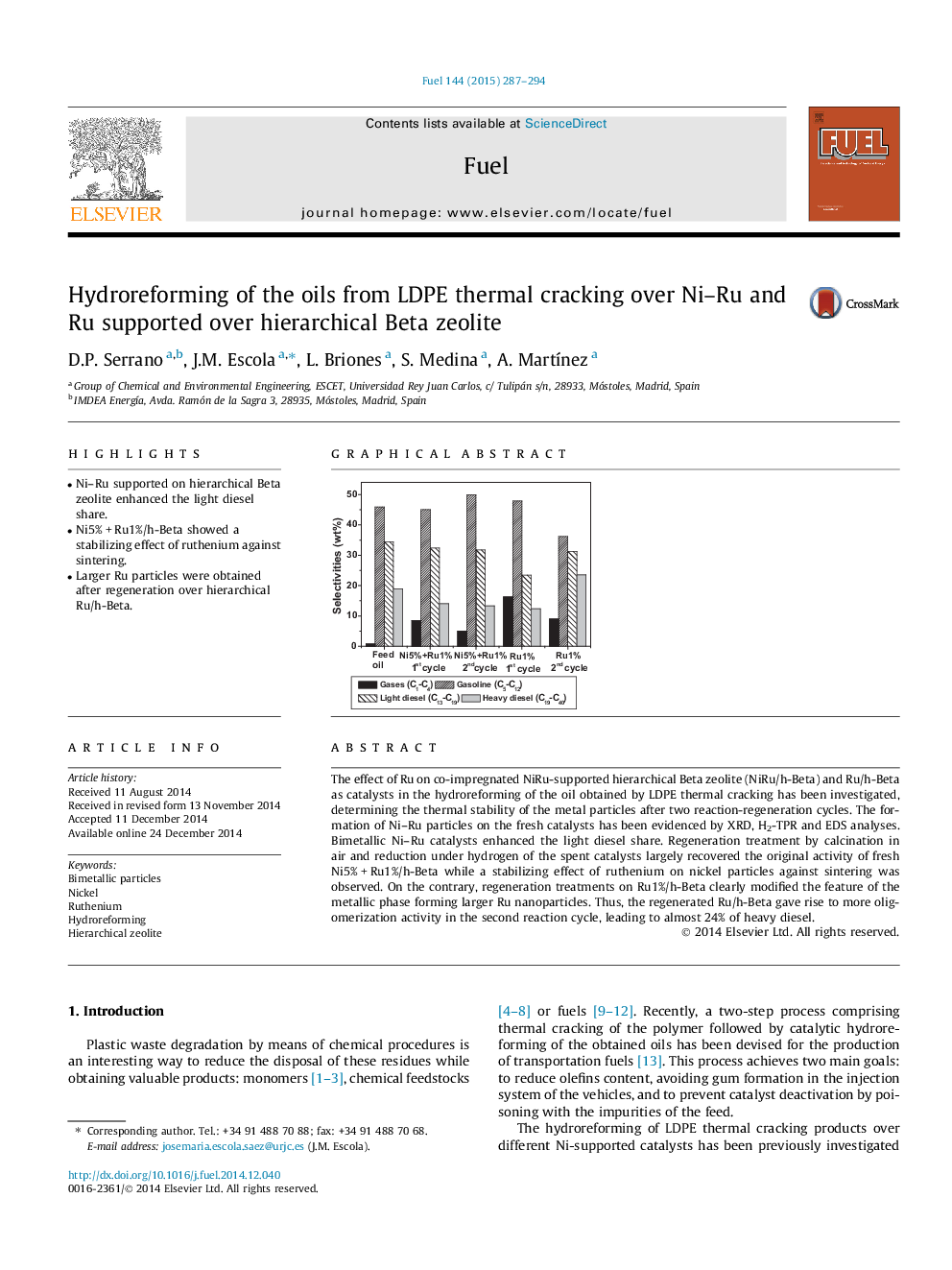| Article ID | Journal | Published Year | Pages | File Type |
|---|---|---|---|---|
| 205852 | Fuel | 2015 | 8 Pages |
•Ni–Ru supported on hierarchical Beta zeolite enhanced the light diesel share.•Ni5% + Ru1%/h-Beta showed a stabilizing effect of ruthenium against sintering.•Larger Ru particles were obtained after regeneration over hierarchical Ru/h-Beta.
The effect of Ru on co-impregnated NiRu-supported hierarchical Beta zeolite (NiRu/h-Beta) and Ru/h-Beta as catalysts in the hydroreforming of the oil obtained by LDPE thermal cracking has been investigated, determining the thermal stability of the metal particles after two reaction-regeneration cycles. The formation of Ni–Ru particles on the fresh catalysts has been evidenced by XRD, H2-TPR and EDS analyses. Bimetallic Ni–Ru catalysts enhanced the light diesel share. Regeneration treatment by calcination in air and reduction under hydrogen of the spent catalysts largely recovered the original activity of fresh Ni5% + Ru1%/h-Beta while a stabilizing effect of ruthenium on nickel particles against sintering was observed. On the contrary, regeneration treatments on Ru1%/h-Beta clearly modified the feature of the metallic phase forming larger Ru nanoparticles. Thus, the regenerated Ru/h-Beta gave rise to more oligomerization activity in the second reaction cycle, leading to almost 24% of heavy diesel.
Graphical abstractFigure optionsDownload full-size imageDownload as PowerPoint slide
